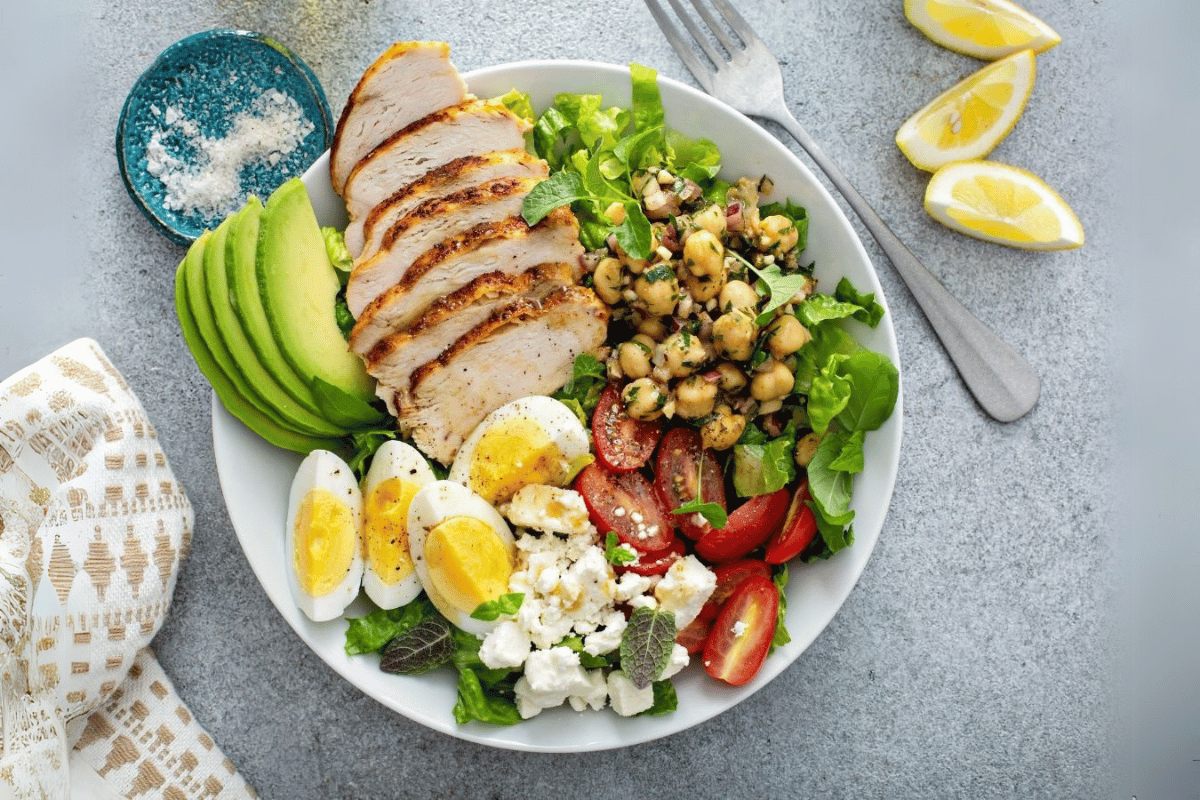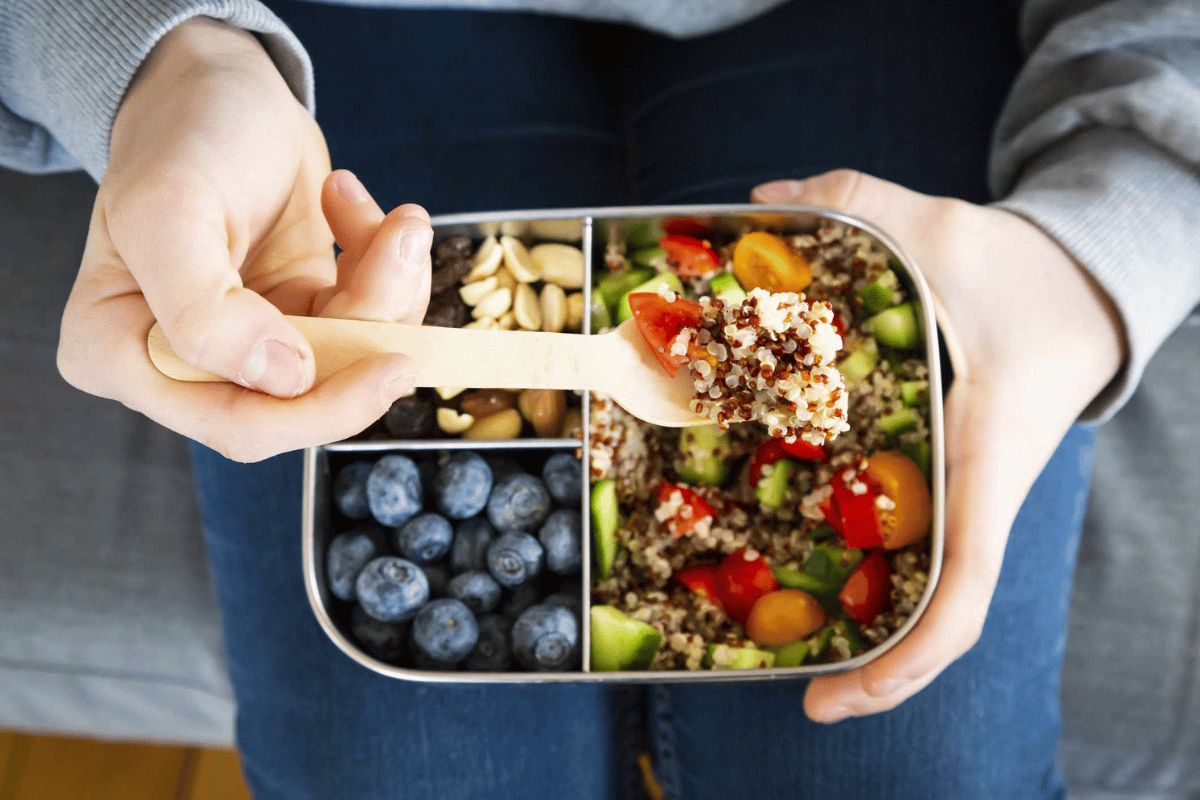Losing weight quickly and keeping it off without exercise may seem daunting, but it is achievable with the right approach. For many, sustainable weight loss often feels tied to grueling workouts and intense physical activity. However, focusing on lifestyle changes and dietary adjustments can be equally, if not more, effective.
The key to losing weight fast, naturally, and permanently without exercise lies in creating habits that promote a healthier relationship with food and a more balanced lifestyle. This article aims to provide 6 proven tips that are effective and easy to implement, helping you achieve lasting weight loss results naturally.
how to lose weight fast naturally and permanently without exercise
The Importance of Natural Weight Loss
Why Natural Weight Loss is Sustainable
Natural weight loss focuses on building healthy habits that promote long-term results. Unlike quick fixes or fad diets that promise dramatic changes in a short period, natural methods prioritize gradual progress, which is easier to maintain. Adopting habits like mindful eating, balanced nutrition, and stress management creates a foundation for consistent weight management that doesn’t rely on exercise.
Quick fixes often lead to rebound weight gain because they typically involve unsustainable practices, such as extreme calorie restrictions or eliminating entire food groups. In contrast, natural weight loss emphasizes a balanced approach, helping you make lifestyle changes that become second nature over time.
How Natural Weight Loss Works
Natural weight loss relies on three fundamental principles:
- Reducing Calorie Intake: Consuming fewer calories than your body needs encourages fat loss. By controlling portion sizes and avoiding high-calorie processed foods, you can achieve a caloric deficit without feeling deprived.
- Improving Metabolism: Small adjustments, such as eating more protein and fiber or staying hydrated, can naturally boost your metabolism. This helps your body burn calories more efficiently, even at rest.
- Managing Hunger: Foods rich in protein and fiber help you feel full longer, reducing the likelihood of overeating. Combining these with proper hydration and stress management ensures hunger is controlled, making it easier to stay on track.
Natural weight loss focuses on improving overall health while achieving sustainable results, proving that achieving your goals is possible even without exercise.

how to lose weight fast naturally and permanently without exercise
6 Proven Tips on How to Lose Weight Fast, Naturally and Permanently Without Exercise
1. Control Your Caloric Intake
Achieving weight loss starts with creating a caloric deficit, which means consuming fewer calories than your body burns. This approach forces your body to use stored fat for energy, leading to gradual weight loss.
Tips to manage caloric intake:
- Portion control: Use smaller plates and avoid eating directly from packages to regulate portions.
- Mindful eating: Focus on your meals, chew slowly, and avoid distractions like TV while eating.
- Avoid high-calorie processed foods: Limit sugary snacks, fried foods, and fast food that can quickly add empty calories.
Tracking your food intake with a journal or app ensures you remain in a caloric deficit without feeling deprived. This method allows you to adjust portions and food choices while enjoying your meals.
2. Increase Your Protein Intake
Consuming more protein helps reduce hunger, boost metabolism, and preserve muscle mass, which is crucial for sustainable weight loss. Protein also takes longer to digest, keeping you fuller for extended periods and reducing the likelihood of overeating.
Protein-rich foods to include:
- Lean meats like chicken, turkey, and fish.
- Plant-based proteins such as lentils, chickpeas, and tofu.
- Snacks like eggs, nuts, and Greek yogurt.
Adding protein to every meal helps you maintain energy levels and aids in faster fat burning by increasing your body’s thermic effect of food (calories burned during digestion).
3. Eat More Fiber-Rich Foods
Fiber is a powerful ally for natural weight loss. It helps you feel full, reduces calorie intake, and supports healthy digestion. Fiber also stabilizes blood sugar levels, preventing sudden energy crashes that lead to cravings.
Fiber-rich foods to include:
- Vegetables like broccoli, spinach, and carrots.
- Fruits like apples, berries, and pears.
- Whole grains such as oats, quinoa, and brown rice.
Incorporating fiber into your diet can prevent overeating, regulate digestion, and make your meals more satisfying, ensuring long-term success.
4. Stay Hydrated
Staying hydrated is essential for effective weight loss. Drinking enough water can reduce hunger, boost metabolism, and improve digestion. Often, thirst is mistaken for hunger, leading to unnecessary snacking.
Hydration tips:
- Replace sugary drinks like sodas and juices with water to cut calories.
- Drink a glass of water before meals to naturally reduce appetite.
- Aim for at least 8 glasses of water daily, or more if needed.
Proper hydration supports weight loss and helps alleviate bloating and other digestive issues.
5. Get Enough Sleep
Inadequate sleep disrupts the hormones regulating hunger, particularly ghrelin (which increases hunger) and leptin (suppressing appetite). Poor sleep can also increase cravings for high-calorie foods, making weight loss more challenging.
Tips to improve sleep hygiene:
- Establish a consistent sleep schedule by going to bed and waking up at the same time daily.
- Avoid screens an hour before bedtime to promote better sleep quality.
- Create a relaxing nighttime routine, such as reading or meditating.
Prioritizing sleep helps balance hunger hormones, reduces cravings, and supports natural weight loss.
6. Manage Stress
Chronic stress triggers the release of cortisol, a hormone that promotes fat storage, particularly around the belly. High-stress levels can also lead to emotional eating and cravings for unhealthy comfort foods.
Stress management techniques:
- Practice mindfulness activities like meditation or yoga to reduce stress levels.
- Incorporate deep breathing exercises into your daily routine to calm the mind and body.
- Take time for self-care and relaxation through hobbies, journaling, or outdoors.
By managing stress effectively, you can prevent overeating and support fat loss while improving emotional well-being.

how to lose weight fast naturally and permanently without exercise
How to Implement These Tips for Lasting Results
Create a Balanced Daily Routine
Incorporating the 6 proven tips into your daily life doesn’t have to feel overwhelming. A well-structured routine ensures you can stick to your goals without unnecessary stress.
How to structure your day:
- Morning: Start with a high-protein breakfast, such as eggs or Greek yogurt, to avoid hunger. Drink a glass of water to rehydrate and kick-start your metabolism.
- Midday: Plan a fiber-rich lunch with non-starchy vegetables, lean protein, and whole grains to keep you full and energized. Stay hydrated by sipping water throughout the day.
- Afternoon: Incorporate mindfulness into your snacks or breaks. To avoid cravings, opt for a handful of nuts or a low-calorie, nutrient-dense option.
- Evening: Practice mindful eating during dinner, focusing on portion control and balanced meals. Take time to unwind with relaxation techniques, like meditation or journaling, to reduce stress before bedtime.
- Nighttime: Establish a consistent sleep routine to improve rest and hormonal balance and ensure your body stays on track for weight loss.
Creating a balanced routine helps you seamlessly integrate these tips into your lifestyle, making it easier to maintain long-term success.
Focus on Long-Term Habits
The key to losing weight fast, naturally, and permanently without exercise lies in adopting sustainable habits rather than seeking temporary fixes. Quick diets or extreme measures may yield short-term results but often lead to rebound weight gain.
How gradual changes lead to lasting results:
- Start small: Implement one or two tips at a time to build consistency without feeling overwhelmed.
- Focus on progress, not perfection: Celebrate small wins, such as improved hydration or better sleep, rather than just the number on the scale.
- Stay adaptable: Adjust your habits and routines to ensure they fit your lifestyle and remain enjoyable.
By committing to gradual changes and building habits that work for you, you set yourself up for long-term success, keeping the weight off permanently while enjoying a healthier, more balanced life.
Overcoming Challenges and Staying on Track
Dealing with Plateaus
Weight loss plateaus are common and discouraging, but they are a natural part of the process. Plateaus occur when your body adapts to changes in diet or caloric intake, slowing progress.
How to break through plateaus:
- Adjust your diet: Slightly reduce caloric intake or increase protein and fiber-rich foods to boost metabolism.
- Focus on other health improvements: Shift attention to non-scale victories, like improved energy, digestion, or clearer skin.
- Change meal patterns: Try intermittent fasting or varying meal times to reset your metabolism.
Staying motivated during a plateau requires focusing on long-term goals and understanding that progress is not always linear.
Avoiding Common Mistakes
Extreme calorie restriction or skipping meals may seem like quick fixes, but they can sabotage your weight loss journey. These practices often lead to rebound weight gain, nutrient deficiencies, and a slower metabolism.
Why balanced nutrition matters:
- A sustainable diet includes all food groups in moderation, emphasizing nutrient-dense options.
- Consuming regular, balanced meals helps regulate hunger hormones and prevents binge eating.
By avoiding these mistakes and sticking to a balanced approach, you can maintain steady progress and ensure your weight loss is healthy and lasting.
Staying Consistent
Consistency and patience are key to achieving and maintaining weight loss. Sustainable habits, when practiced daily, create the foundation for long-term success.
Tips for staying consistent:
- Track your progress: To stay accountable, use a journal or app to monitor food intake, hydration, and other metrics.
- Celebrate small victories: To stay motivated, reward yourself for meeting milestones, like sticking to your meal plan or drinking enough water.
- Remind yourself of your goals: Visualize the benefits of reaching your desired weight to maintain focus during challenging times.
By embracing consistency, tracking progress, and celebrating achievements, you can overcome challenges and stay on track toward your weight loss goals.

how to lose weight fast naturally and permanently without exercise
Conclusion
Focusing on consistent lifestyle changes and healthier habits can help achieve sustainable weight loss without exercise. The six proven tips—controlling caloric intake, increasing protein and fiber consumption, staying hydrated, improving sleep quality, and managing stress—provide a natural and effective way to lose weight fast, naturally, and permanently.
While progress may take time, the key is to remain patient and committed. By implementing these tips gradually and staying consistent, you can achieve lasting results without relying on quick fixes or extreme measures. Embrace the journey, track your progress, and focus on building a healthier, more balanced lifestyle for long-term success.

how to lose weight fast naturally and permanently without exercise
FAQ: How to Lose Weight Fast, Naturally and Permanently Without Exercise
1. Can I lose weight without exercise?
Yes, it’s possible to lose weight without exercise by focusing on healthy eating habits, controlling calorie intake, and adopting sustainable lifestyle changes like improving sleep and managing stress.
2. How can I lose weight naturally and permanently?
To lose weight naturally and permanently, follow these proven tips:
- Control your caloric intake to create a caloric deficit.
- Increase protein and fiber consumption to stay full and boost metabolism.
- Stay hydrated and replace sugary drinks with water.
- Prioritize quality sleep and manage stress effectively.
3. Why is natural weight loss more sustainable than fad diets?
Natural weight loss emphasizes gradual, healthy changes that are easy to maintain, whereas fad diets often lead to rebound weight gain due to their restrictive and unsustainable nature.
4. How can I stay consistent without exercise?
- Create a daily routine with structured meals and hydration.
- Track your progress with a journal or app.
- Celebrate small victories like improved energy or weight milestones.
5. What can I do to avoid weight loss plateaus?
- Adjust your diet by slightly reducing calories or adding more protein and fiber.
- Focus on non-scale victories, such as better digestion or clearer skin.
- Change meal patterns, like trying intermittent fasting, to reset metabolism.
6. Is skipping meals a good strategy for weight loss?
No, skipping meals can slow your metabolism and lead to overeating later. Instead, focus on balanced meals with moderate portions to support consistent weight loss.
7. What foods should I prioritize for natural weight loss?
- Protein-rich foods: Lean meats, eggs, legumes, and nuts.
- Fiber-rich foods: Vegetables, fruits, and whole grains.
- Healthy fats: Avocados, olive oil, and seeds.
8. How can I manage stress to prevent weight gain?
- Practice mindfulness techniques like meditation or deep breathing.
- Engage in relaxing activities, such as journaling or spending time outdoors.
- Ensure emotional balance to avoid overeating or emotional eating.
9. How long will it take to see results?
Results vary, but following these tips can help you see steady progress within a few weeks. Consistent habits can also make long-term success achievable.
10. What’s the best way to stay motivated?
- Focus on small, achievable goals and celebrate milestones.
- Track progress, not just on the scale but also in energy, mood, and health improvements.
- Remind yourself of your long-term goals and visualize your success.

